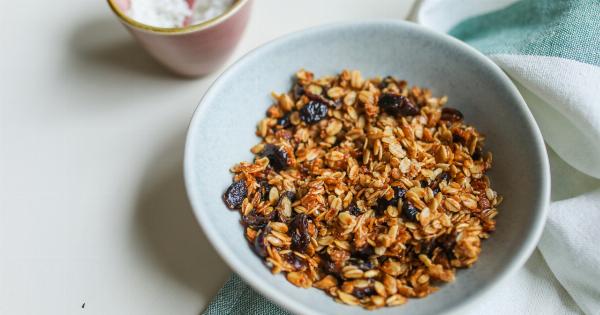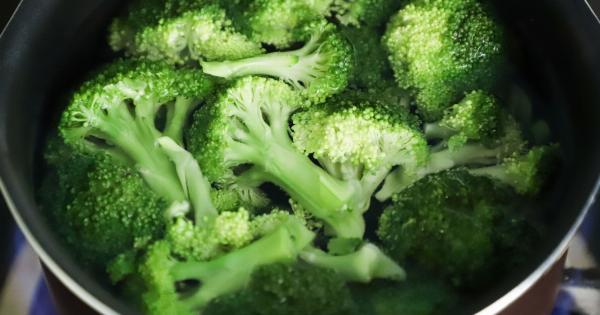When it comes to treating mental health disorders, such as schizophrenia, the conventional approach often involves a combination of medication, therapy, and lifestyle changes.
However, emerging research suggests that certain foods, particularly Brussels sprouts, may offer additional therapeutic benefits. These tiny green vegetables, often overlooked in the culinary world, contain a unique blend of nutrients and active compounds that make them a powerful ally in the treatment of schizophrenia.
Nutritional Benefits of Brussels Sprouts
Brussels sprouts are a member of the cruciferous vegetable family, along with broccoli, cabbage, and kale. Like their relatives, Brussels sprouts are packed with essential nutrients that contribute to overall health and well-being. These include:.
- Vitamin C: Brussels sprouts are a potent source of vitamin C, which plays a crucial role in supporting the immune system and reducing oxidative stress.
- Vitamin K: With a generous amount of vitamin K, Brussels sprouts contribute to healthy blood clotting, bone health, and may even have a positive impact on cognitive function.
- Fiber: High in fiber content, Brussels sprouts promote healthy digestion and contribute to better gut health.
- Folate: Folate, also known as vitamin B9, found in Brussels sprouts is vital for the production of DNA and RNA. It plays an integral role in maintaining mental health and reducing the risk of depression.
- Antioxidants: Brussels sprouts are rich in antioxidants, such as kaempferol and quercetin, which protect against cellular damage caused by free radicals.
The Role of Brussels Sprouts in Schizophrenia Treatment
While Brussels sprouts offer a range of general health benefits, their potential as an ally in schizophrenia treatment is particularly intriguing.
Several studies have investigated the impact of Brussels sprouts’ active compounds on the symptoms and management of schizophrenia. Here are some key findings:.
1. Antioxidant Protection
As previously mentioned, Brussels sprouts contain antioxidants that provide protection against oxidative stress. Oxidative stress is believed to play a role in the development and progression of schizophrenia.
By consuming Brussels sprouts, individuals with schizophrenia may benefit from reduced oxidative stress and have a better chance of managing their symptoms effectively.
2. Anti-inflammatory Effects
Chronic inflammation is another factor that can contribute to the development of schizophrenia. Certain compounds found in Brussels sprouts, such as glucobrassicin and sulforaphane, exhibit potent anti-inflammatory properties.
These compounds may help reduce inflammation in the brain and alleviate symptoms associated with schizophrenia.
3. Balancing Neurotransmitters
Imbalances in neurotransmitters, such as dopamine and glutamate, are commonly observed in individuals with schizophrenia.
Studies suggest that Brussels sprouts’ active compounds can modulate the activity of these neurotransmitters, potentially restoring their balance and improving symptoms.
4. Enhancing Cognitive Function
Impaired cognitive function is a significant characteristic of schizophrenia. Brussels sprouts, with their significant vitamin K content, may contribute to better cognitive function.
Vitamin K has been linked to improved memory and overall cognitive performance, making Brussels sprouts a valuable addition to the diet of those living with schizophrenia.
5. Supporting Gut Health
Emerging research has shown a strong correlation between gut health and mental health. Brussels sprouts, being rich in fiber and other essential nutrients, promote gut health and contribute to a balanced gut microbiome.
By improving gut health, Brussels sprouts may indirectly support the management of schizophrenia symptoms.
How to Incorporate Brussels Sprouts into the Diet
Integrating Brussels sprouts into one’s diet can be both delicious and nutritious. Here are some ideas for incorporating these powerful vegetables into meals:.
1. Roasted Brussels Sprouts
Roasting Brussels sprouts in the oven with a drizzle of olive oil, salt, and pepper can bring out their natural sweetness and enhance their flavor. This simple yet tasty preparation method works well as a side dish or even as a standalone snack.
2. Brussels Sprouts Stir-Fry
Sautéing Brussels sprouts with your favorite vegetables, garlic, and a dash of soy sauce creates a quick and easy stir-fry. The high heat preserves the nutritional value of the sprouts while giving them a slight crispiness.
3. Shaved Brussels Sprouts Salad
For a fresh and vibrant salad, thinly slice Brussels sprouts and combine them with mixed greens, cranberries, nuts, and a tangy vinaigrette. This salad not only provides the nutritional benefits of Brussels sprouts but also adds a delightful crunch.
4. Brussels Sprouts Soup
Simmering Brussels sprouts with vegetable broth, onions, and herbs creates a hearty and comforting soup. This method allows the nutrients from the sprouts to infuse into the broth, offering a nourishing meal option.
Conclusion
Brussels sprouts, often underestimated in culinary circles, possess remarkable potential as a complementary treatment for schizophrenia.
Their nutritional benefits, coupled with their active compounds, make them a powerful ally in managing the symptoms of this mental disorder. By incorporating Brussels sprouts into a balanced diet, individuals with schizophrenia may experience improved antioxidant protection, reduced inflammation, balanced neurotransmitters, enhanced cognitive function, and better gut health.
It is important to consult with a healthcare professional to integrate Brussels sprouts into a comprehensive treatment plan for schizophrenia.




























